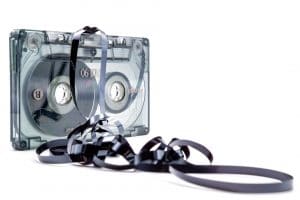Self-Therapy and Family Ties
Author: Jesse Eisenberg
When You Finish Saving the World is a three-part story of a family who confronts their traumas through recorded self-therapy. It begins with Nathan, an unhappy father who cannot connect with his newborn son. He is slowly working his way through the bonding experience (at the insistence of his angry spouse) with the help of a psychiatrist who has him recording and then emailing monologues of his feelings and experiences. Through the recordings, Nathan slowly confronts his issues and limitations, his family problems, and builds a bridge to hope.
Next, his wife, Rachel, has her own, older recording experience. Before she met Nathan, she was engaged to a soldier who was later killed in Afghanistan. As Rachel begins her college experience, she records and sends tapes to her fiancé, coming to a deeper knowledge of self and her beliefs.
 Finally, the story comes full circle with Ziggy, the now grown son of Nathan and Rachel. In a futuristic world Ziggy is having trouble at school and is forced to record counseling sessions with a robot until his disciplinary period is over. As Ziggy records his own feelings he works through issues with his family, his own internal feelings, and even love.
Finally, the story comes full circle with Ziggy, the now grown son of Nathan and Rachel. In a futuristic world Ziggy is having trouble at school and is forced to record counseling sessions with a robot until his disciplinary period is over. As Ziggy records his own feelings he works through issues with his family, his own internal feelings, and even love.
When You Finish Saving the World is really a series of three linked short stories about individuals who are united by family ties, the things they have put one another through, and how they each come to a deeper awareness of self through introspective monologue. It’s contrived, mostly, and while there are shining moments, there is also a deep self-awareness that ranges from poignant (rarely) to sappy. The turmoil between Rachel and her husband is never really addressed, and while Rachel is the heroine of the tale, her darker side remains unexplored, and she never really has a moment of realization. This is most clear in Nathan’s story, especially when his unspoken grief over their son’s name is revealed (she names their son after her dead fiancé). There are depths and dimensions here, complexities that while alluded to, are not explored.
 The final portion of the story, told by the too-cool-for-school Ziggy, ruins much of the atmosphere. Ziggy is an irritating figure, over-stereotyped and ridiculously future-ized. His narrative is jarring and often annoying. Much of the poignancy and connection is lost here, especially as the author tries out new “future” slang.
The final portion of the story, told by the too-cool-for-school Ziggy, ruins much of the atmosphere. Ziggy is an irritating figure, over-stereotyped and ridiculously future-ized. His narrative is jarring and often annoying. Much of the poignancy and connection is lost here, especially as the author tries out new “future” slang.
Overall, for a free Audible, it wasn’t bad, but it certainly was not memorable. There are moments that are entertaining, even a few that are thoughtful, but mostly When You Finish Saving the World is just an ok listen, good enough to have playing while you’re cooking or otherwise engaged and not able to fully immerse into a deeper story.
– Frances Carden
Follow my reviews on Twitter at: https://twitter.com/xombie_mistress
Follow my reviews on Facebook at: https://www.facebook.com/FrancesReviews
- Book Vs Movie: The Shining - April 6, 2020
- Thankful For Great Cozy Mysteries - December 13, 2019
- Cozy Mysteries for a Perfect Fall - October 20, 2019



